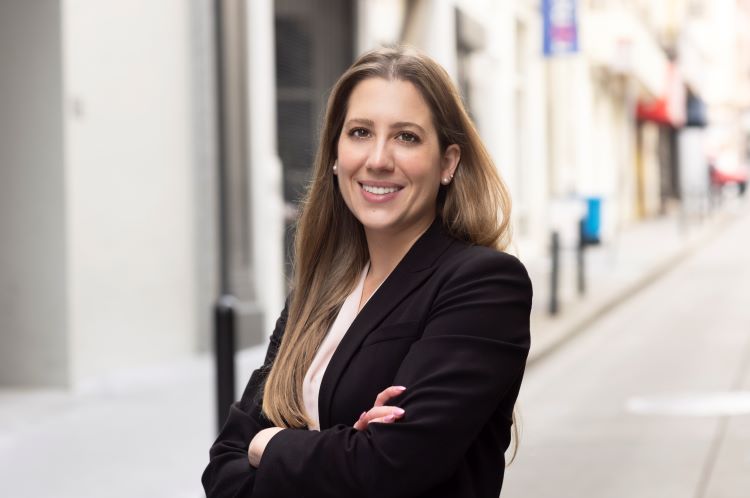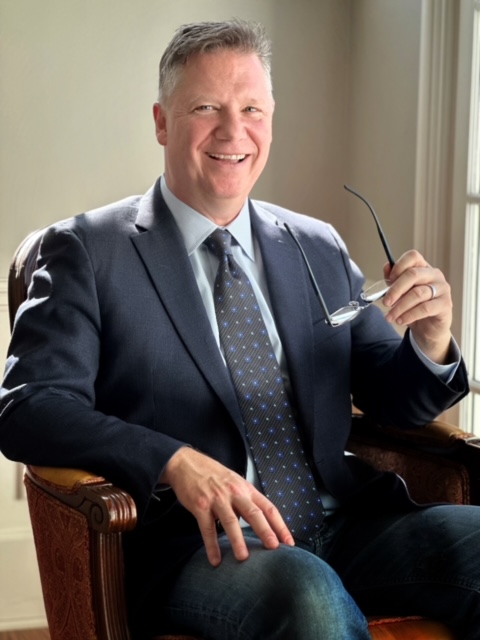How young attorneys are shaking up law firm culture

Image from Shutterstock.
Lawyer Cali M. Franks’ moment of clarity came in October 2021 as she sat down with her fiance to watch an episode of The Mandalorian but was torn between the Disney+ show or billing a half-hour of time.
“I remember thinking, ‘For every big life event that happens, am I going to sit there and think, ‘Well, I can open Christmas presents or I can bill point-five?’” Franks says.
For the 27-year-old the choice was clear: Either vote with her feet or “bill my life away.” She quit her job at an insurance defense firm in Dallas to work as a program attorney for the online education platform, Lawline, making “room and space” at a workplace she says has flexible hours and coaches employees to create “a culture of understanding and learning.”
In her bid for better work-life balance, 29-year-old lawyer Olivia Bona took a different approach. She had practiced at international law firm Greenberg Traurig but in March 2021 took a job at Lewis & Llewellyn’s Los Angeles office, which has fewer than 20 attorneys. Time off at the firm is “protected and respected,” the hours are reasonable and everyone at the firm is treated as an equal, according to Bona.
“I think the biggest challenge is figuring out how do I carve out time for me while learning and growing in this career, where it’s fulfilling but endless,” Bona says. “If you let it, it can take over your whole life.”
Like other young lawyers, Bona and Franks are candid about striking a balance between work and their personal lives. For some, that means leaving behind BigLaw’s relentless pace for other kinds of work. For others, it means finding a workplace culture aligned with their priorities and values.
There has long been a stigma attached to mental health in a profession that traditionally had rigid work policies. Chris Kilner, a British legal recruiter who works with international law firms based in London, says there also is a tension between younger lawyers and leaders, who sometimes find their juniors frustrating.
“They’re saying, ‘These guys and girls really do like to whine and vent a lot, but they’re not giving us any solutions,’” Kilner says.
Even so, Kilner and Bradley D. Wine, the managing partner at the Austin, Texas, office of international firm Morrison Foerster, believe law firms will have no choice but to meet the demands of the next generation of legal talent.
“You can bemoan the good old days,” Wine says. “But the reality is, this is the army we’re going to war with. We either recognize their needs and reflect those needs in the environment we’re asking them to work in, or we’re telling them, ‘You need not work here.’”
 In March 2021, Olivia Bona took a job at Lewis & Llewellyn’s Los Angeles office, which has fewer than 20 attorneys. Photo courtesy of Lewis & Llewellyn.
In March 2021, Olivia Bona took a job at Lewis & Llewellyn’s Los Angeles office, which has fewer than 20 attorneys. Photo courtesy of Lewis & Llewellyn.
Pushing back
Franks says the 2020 lockdown forced the profession to grow “10 years in two days” accelerating changes to law firm culture. But in the three years since, the pandemic has led to all-time high levels of stress and burnout, especially among young workers.
Richard D. Rivera, 36, a partner in the Jacksonville, Florida, office of Smith, Gambrell & Russell says younger lawyers are also pushing back against an “always-on” culture that demands around-the-clock availability and work on weekends and during vacations.
“I think lawyers of my generation have forced the issue for employers and partners and bigger law firms,” Rivera says.
Surveys point to a ripple effect of these cultural and generational changes. Clio’s 2022 Legal Trends report found that nearly 1 in 5 lawyers had left their jobs, with better pay and work-life balance cited as the top reasons. The 2022 Thomas Reuters Institute report, Law Firms Competing for Talent 2022: Will Lawyers Stay or Go?, suggests junior associates are “more apt to cite things like culture and work-life balance” over compensation when talking about what they like about their firms.
Some research suggests that Generation Z, which represents the next wave of legal talent just coming out of law school, is more vocal about mental health struggles than previous generations and more likely to demand work-life balance, fair pay and flexible working arrangements.
“We are more than just billing machines,” says Josephine M. Bahn, 32, an associate with Cozen O’Connor and chair of the ABA’s Young Lawyers Division (she is also on the ABA Journal Board of Editors) “How we learn is different and what’s going to keep us somewhere for a longer time is different.”
Bahn is a mother of two young children. She moved to Cozen O’Connor because she wanted a job that would allow her to go home for dinner most nights and take her 3-year-old daughter, Ruth, to gymnastics class on Wednesday afternoons. Although Cozen O’Connor is an Am Law 100 firm, she says partners will check in on her when she’s billing extra hours to meet a pressing deadline to see how she’s doing, making her feel valued.
“I turned down opportunities that would have paid me significantly more because the culture at my current firm is on the whole person and the long-term development of people,” Bahn says.
Bona, meanwhile, went into interviews with a shrewd strategy to weed out firms. She was open about her life outside of work, including how she likes to hike with her dog, Yvonne, and go to the gym at 6 p.m. She asked partners and associates about their hobbies to figure out if they had lives outside the office.
“My approach in interviews was to talk about how I was a whole balanced person and gauge reactions and look closely at the associates. Did they look rested? How did they talk about their work? I tried to get at it that way, as opposed to [saying], ‘I have firm boundaries,’” Bona says.
Lip service
Warren Lex partner Jen Kash, 51, who also left her career in BigLaw behind because of stress and burnout, agrees law firm leaders sometimes say younger attorneys are failing to pay their dues. But she says that hasn’t been her experience with the young millennials who work at her law firm in San Francisco.
“Do they have a tendency to be more assertive about their boundaries than I was when I was an associate? Yeah. But I think that’s a positive,” Kash says.
As much as younger lawyers may be driving change, Kash believes that in a stressful and demanding profession, law firm leaders have a duty to make sure they aren’t burning younger associates out.
“Law firms need to put forward people who have been through some of the challenges and struggles with mental health and depression, and be open and transparent about it with the junior associates,” Kash says. “Generation Z will insist on transparency. The old idea of governing law firms behind closed doors, where the partners make decisions and the associates have no idea what’s happening, those days are numbered.”
Too often, the relationship between BigLaw firms and associates is transactional, Wine adds, with lawyers billing thousands of hours each year, paying off their law school debt, and moving on.
“We want people that could stay with us for a long time,” Wine says. “I don’t want to burn people out after a year or two. We invest too much money in the training and development of these associates.”
But lip service won’t be enough. Franks and her peers came of age in a digital era, and she says social media means young lawyers can quickly “compare notes” to see if their firms are delivering on mental health and wellness.
Kliner adds that firms that ignore the demands of this next generation of talent, do so at their peril.
“It won’t be long before Gen-Z are the clients,” Kilner notes.



